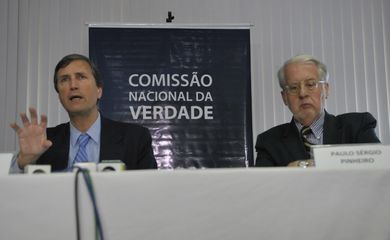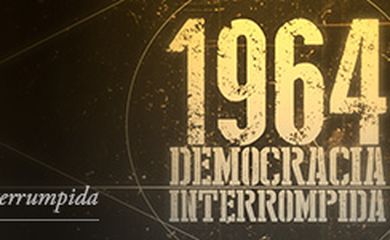Political disappearances commission suggests Supreme Court to review Amnesty Law




Professor Paulo Abrão, President of the Brazilian Amnesty Commission and National Secretary of Justice of the Mercosur Institute of Public Policies on Human Rights (IPPDH),
Eugênia Gonzaga, federal prosecutor and President of the Special Commission on Political Killings and Disappearances of the Human Rights Secretariat, defended on Friday (Sep. 25) that the Federal Supreme Court (STF) should undergo a revision of the Amnesty Law so that State officials are hold accountable for the criminal actions and human rights violations committed during the military dictatorship. "None of liability cases proceeded due to the interpretation made in the country about the law validity to dictatorship officials, despite the decision of the Inter-American Court of Human Rights. Brazil has been insisting on violating the court decision," she reported.

At the seminar on the 40th anniversary of Operation Condor, a tribute to a missing communist activist
In 2010, the Inter-American Court of Human Rights decided that the law was valid, but not for the grave human rights violations committed during the Brazilian military dictatorship. According to Gonzaga, there are already requests in the Supreme Court, waiting for new analysis.
For Professor Paulo Abrão, President of the Brazilian Amnesty Commission and National Secretary of Justice of the Mercosur Institute of Public Policies on Human Rights (IPPDH), it is necessary to shift these two perspectives, so that the decision "can come in a way of asserting the idea that crimes against humanity are imprescriptible and should not be submitted to amnesty," he declared.
The Institute organized the 2nd Public Consultation held by the Forum for Social Participation, which was attended by representatives of over 50 organizations from Argentina, Venezuela, Paraguay and Uruguay, in addition to Brazil. They also conducted a seminar to celebrate the 40th anniversary of Operation Condor, a collaborative scheme among South American dictatorial regimes in the 1970s and 1980s.
Integration among the southern cone countries is, for Paulo Abrão, a way to strengthen human rights institutions to overcome the enduring authoritarian legacy. "It is always necessary to point out the meaning of regimes of exception, what dictatorship means, what it implies in terms of loss and backwards in our societies in order not to repeat the same mistakes," said the Amnesty Commission President.
He further explained that from this meeting, suggestions will be offered to the government for implementing policies on memory, truth and justice, like the file preservation processes, the identification of centers and torture sites to turn them into museums to raise awareness, and the expansion of policies on psychological reparation and victims' support.
It is also important to monitor lawsuits being processed, like the Operation Condor judgments in Argentina and Rome, according to Paulo Abrão. He said the Operation Condor sentence shall be ruled by the end of the year. "This will certainly put it into new perspectives and [increase] society's knowledge of new evidences and documents that will allow new cycles of identifying: criminal liability, consequence, and victims," he announced.
The meeting was a partnership between the Amnesty Commission of the Justice Ministry and the IPPDH, the Mercosur's Support Unit on Social Participation, the Special Commission on Political Killings and Disappearances and the United Nations Development Programme.
Translated by Amarílis Anchieta
Fonte: Political disappearances commission suggests Supreme Court to review Amnesty Law



